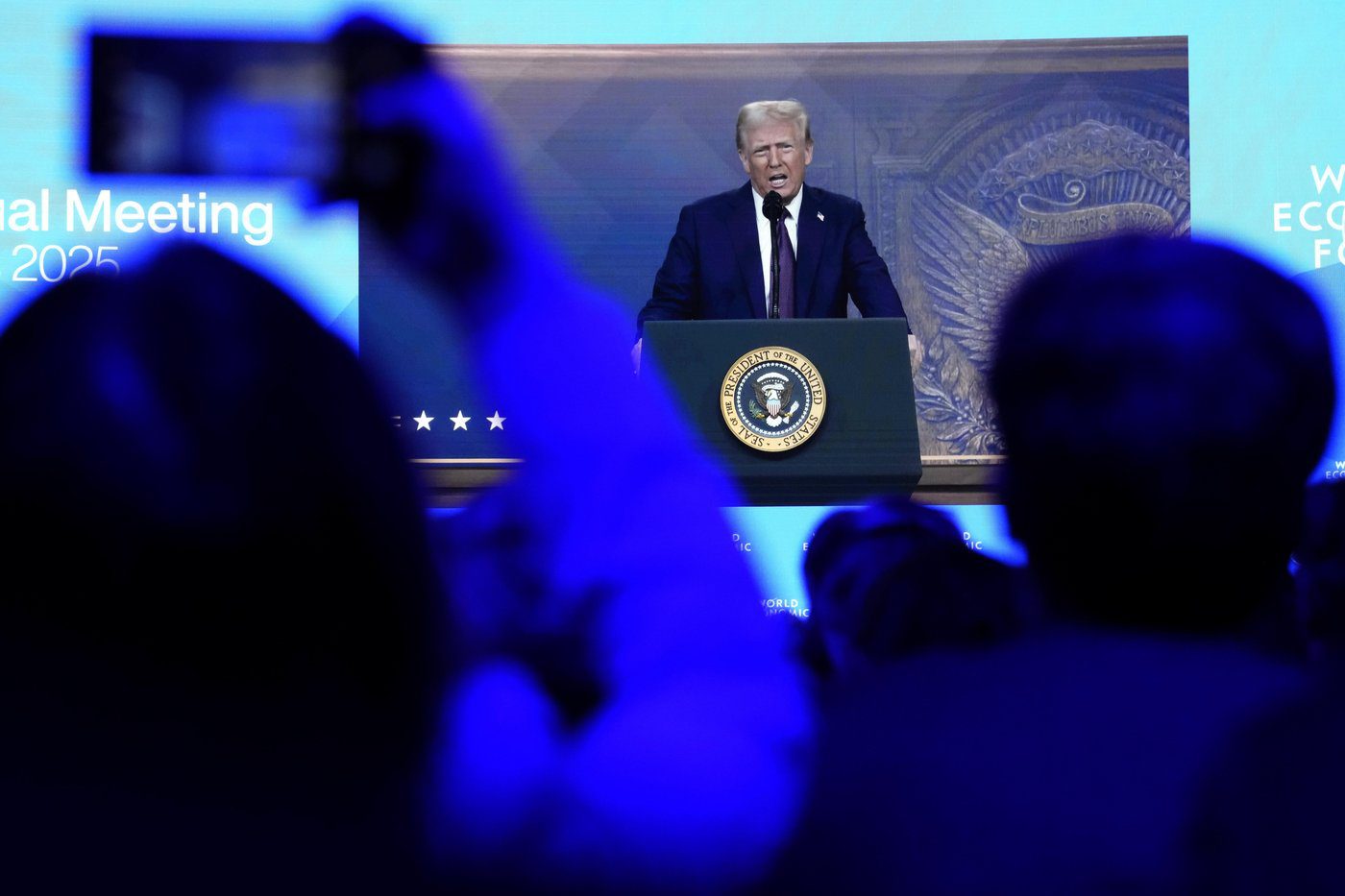WASHINGTON — Experts say U.S. President Donald Trump’s push for the OPEC+ alliance of oil exporting countries to bring down the cost of oil conflicts with the Republican leader’s own plans to make America energy-dominant.
Trump made the comments in a wide-ranging address to the World Economic Forum in Davos, Switzerland on Thursday. He also promised his audience tax cuts if they move manufacturing to the U.S. — and threatened to impose tariffs if they don’t.
“I am also going to ask Saudi Arabia and OPEC to bring down the cost of oil. You got to bring it down,” Trump said, appearing via video link from the White House.
“Which, frankly, I’m surprised they didn’t do before the election. That didn’t show a lot of love by them not doing it.”
Trump said he would demand that interest rates drop if oil prices go down.
The president’s speech came on his third full day back in office. Trump signed a stack of executive actions this week, rapidly charting a new path forward for the United States.
He campaigned on U.S. energy dominance and signed an executive order upon his return to the White House declaring an energy “emergency” as part of his plan to reduce regulatory hurdles. Trump has said it will allow the country to “drill, baby, drill.”
But industry experts said his comments Thursday contradict his vow to increase oil production in the U.S. while also cutting inflation for American consumers.
“The U.S. energy dominance agenda is mutually contradictory with ‘OPEC lower your oil prices,'” said Heather Exner-Pirot, an adviser to the Business Council of Canada.
If the members of the OPEC+ alliance decide to increase production, that would lower prices, she said. Lower prices would displace American supply, which is much costlier to produce.
American producers are now close to breaking even with oil at $70-a-barrel. They would want prices to go up if they are to increase drilling.
“There is no coherency or consistency in what he’s saying on oil markets,” said Exner-Pirot, who is also director of energy, natural resources and environment at the Macdonald-Laurier Institute in Ottawa.
Trump also has threatened to impose 25 per cent across-the-board tariffs on Canadian imports. He said again in his Thursday speech that America doesn’t need Canadian energy.
“Canada’s been very tough to deal with over the years,” he said.
But about 60 per cent of U.S. crude oil imports come from Canada. That means nearly a quarter of the oil America consumes every day comes from north of the border.
Rory Johnston, a Toronto-based oil market researcher and founder of Commodity Context, posted on social media that Trump wants to make “U.S. refinery feedstock — and U.S. consumer pump prices — more expensive via tariffs on Canadian crude.”
“While at the same time reducing the value of U.S. oil production by urging that OPEC+ produce more,” he added. “It’s … a choice.”
Exner-Pirot said she has a theory about the inspiration for Trump’s OPEC comments. She said American oil producers may have warned the president that they can’t ramp up production as he’s promised.
The president also had a phone call with Saudi Arabia’s Crown Prince Mohammed bin Salman earlier Thursday. Trump said he was informed during the call that the kingdom wants to invest $600 billion in the U.S.
Trump told the Davos crowd he would get that sum increased to $1 trillion.
Exner-Pirot said she suspects that Trump is “saying things based on his mood in the past 24 hours.”
Exner-Pirot said Trump’s moves on energy policy “are mutually incompatible with reducing energy prices for Americans and lowering inflation.”
Asked to react to Trump’s claim that the U.S. doesn’t need Canadian oil, Premier Danielle Smith’s press secretary Sam Blackett said the premier’s message “has not changed.”
“A U.S. tariff will hurt American and Canadian consumers, and we should be focused on developing out trade relationship through diplomacy, not threats,” he added.
“In a negotiation, both sides will say all kinds of things and use different tactics. It’s important when this happens to remain calm and diplomatic while continuing to carry out Alberta’s and Canada’s strategy.”
Following her meeting with Trump at his Florida home earlier this month, Smith said it seemed that “the president was interested” in importing more Canadian oil and gas.
“There does seem to be an understanding on the part of the president about how we might be able to get more oil and gas to the United States,” she said.
Trump has also said he wants to stop buying oil from Venezuela and Iran, posted on social media about imposing sanctions on Russia and has stuck to his threat of hitting Canada and Mexico with steep tariffs.
“Everything he is saying cannot all happen,” Exner-Pirot said.
This report by The Canadian Press was first published Jan. 23, 2025.
With files from Lisa Johnson and The Associated Press
Kelly Geraldine Malone, The Canadian Press





